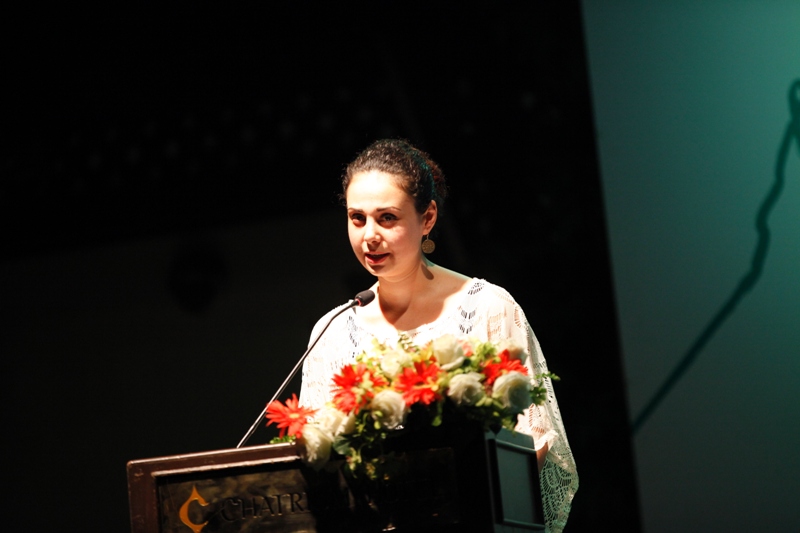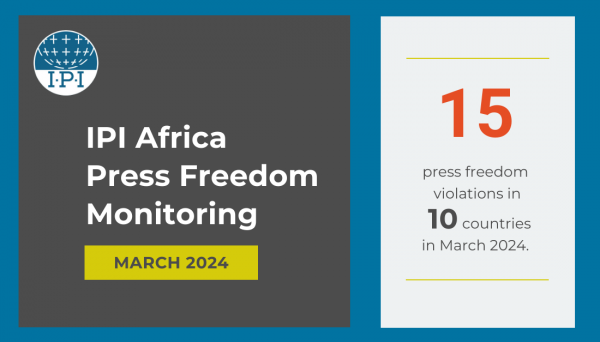Ladies and gentlemen,
I will start with some words published by Mazen Darwish in 2007.
“Today we can’t talk about concepts like democracy or transparency or pluralism without talking about the freedom of the media. Despite the attempts by some to separate the two, it is impossible to have genuine and complete democratic reform in society without the presence of the freedom of opinion and expression, which are the basis of an independent media that is free of government control.”
In an isolated place like Syria, the Wikileaks revolution of 2006 provided hope to many journalists who felt that we live in a golden era of information and that nothing overshadows the right to access information and to exchange it.
But in a country where every word is monitored, a country that is a prison for information and journalists, the struggle for democracy shifted to a fight for media, to a certain extent. We can now talk about the Syria model, in which the struggle of the media has become known to be the point of departure following the events of March 2011. And although tens of journalists were killed while covering the conflict in Syria, the world is still asking the question until this moment: “Is this really what happened?” Thus legitimising the fact that individuals and the international community can avoid feeling a sense of responsibility.
Three months before his arrest, Mazen Darwish wrote an editorial in the newsletter of the Syrian Center for Media and Freedom of expression under the headline: “Sorry sir but you can no longer imprison information.”
The general prosecutor in Syria considered in the charge sheet the work of the Syrian Center for Freedom of expression as having guaranteed that international institutions can accuse Syria in international forums. These activities included information about the situation in Syria that was published online as well as publication of reports on Syria’s human rights violations and the state of Syrian media reports. Also published online were lists of the names of Syrians who were in jail or had disappeared, as well as citizens killed as part of the Syrian struggle.
As a result of his effort to publish the reality of the situation in Syria, Mazen Darwish was arrested on Feb. 16, 2012. For nine months he was held incommunicado, during which he was the subject of torture that almost ended his life. Until this moment, the Syrian authorities are refusing to release him despite international calls as represented in the Security Council resolution number 2139 and the call by the U.N. General Assembly statement on May 15, 2013, as well as many other international calls.
In this ‘Syrian model’, all parties seem to have agreed to target journalists and prevent them from working. As a result this of ‘model’ and since 2011 the largest violations against the press, journalists, war reporters and activists in media areas have taken place.
In areas under the control of the Syria forces, media practitioners were subject to arbitrary arrest, unjust trials and even indiscriminate shelling.
The case of Mazen Darwish stands out as a case in which a U.N. expert committee dealing with arbitrary arrests resolved in January 2014 that Mazen was arrested arbitrarily and called for his release.
Syrian journalists were also the target of direct attacks, sniper fire, torture, kidnapping, disappearance and assassination, both from the authorities and from armed groups. All these crimes are violations of international humanitarian law. The most recent video that showed ISIS beheading foreign journalists has forced us to face yet another form of brutal violation of human rights law,s including clause 8 of the Rome Statute which forbids carrying out capital punishment without a prior decision by a recognised court that can ensure a fair trial.
Mazen Darwish is still behind bars and we continue to lose journalists every day. The goal is to keep an iron curtain to forbid the exchange of information and the ability to check on facts, so as to avoid legal and ethical responsibility towards the victims. Will we stop helplessly in front of this fact? Isn’t it time for an effective move to protect journalists in areas of conflict?
Mazen continues to [resist], from his jail, the violence [in which] our country has lost its civilian peaceful voices – who have been kicked out of the public square and replaced by voices of weapons and extremism – by insisting that freedom of expression and its defence is a duty and defending it with words is a form of resistance. By teaching reading and writing we are also participating in a form of resistance, by being a witness he is resisting this violence.
Upon receiving the award from the PEN International a few months ago Mazen said: “We needed all this blood to believe that it is us who will pay the price of our lives and our futures when we prevent those who differ from us in opinion and expression so that we can dig our graves in our hands when we face thought with attacks of disbelief when we face ideas with violence. The disastrous results area clear to us in the Arab world today, and especially in Syria my homeland.”
This honour is an honour to all the victims of the word and information in Syria. It is for Khalil Matouq, the lawyer defending the right of expression, who has disappeared for more than two years. [It is an honour] to Rami Hindawi and Akram Rislan; to the writer Hussein Isso; to Nazem Hamadi; to Samira Khalil and Loai Hamadeh.
From his jail cell, Mazen sends this prize to the writer, human rights defender and activist Razan Zaitoneh, who has been kidnapped since Dec. 9, 2013. He asked me to send to her these words: “To Razan, the jasmine of our home, our secrets are not deep. The secret is that we can’t be bought or sold, my friend.”



